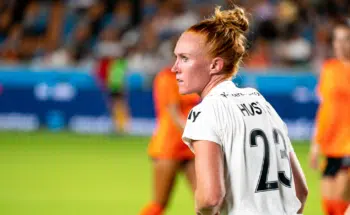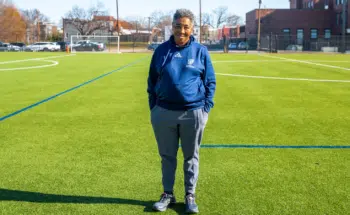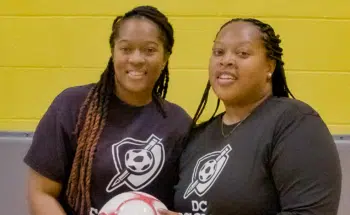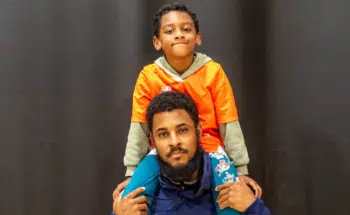“Irreverent” and “Intentional”: Poet-Athlete Award Winner Jason Reynolds On Harnessing Youth Power and Potential
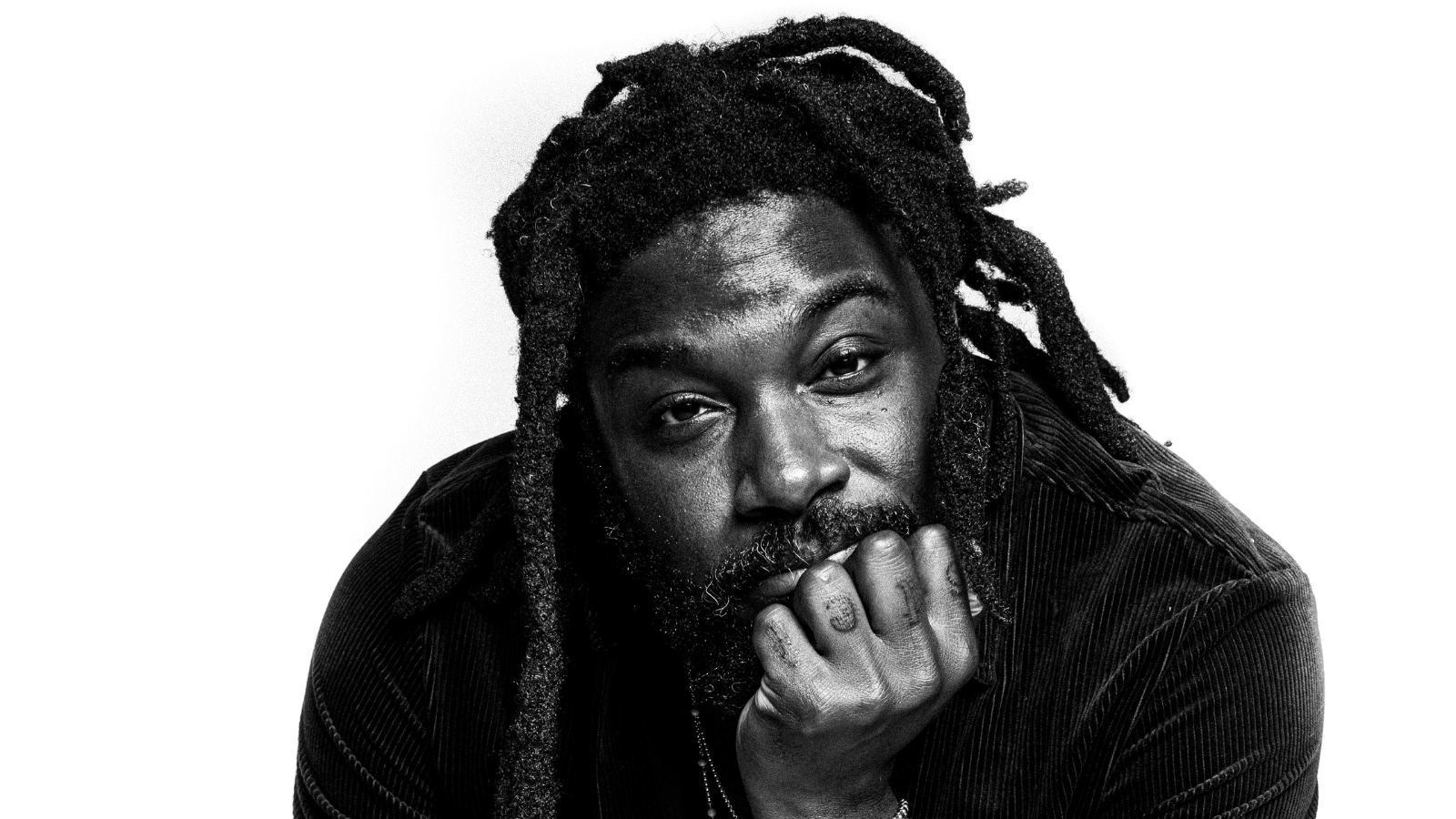
“If you want to be great at being an artist, you have to be great at being yourself,” says Jason Reynolds, reflecting on his career as one of the most celebrated young adult fiction writers working today.
“Over the years, I’d like to believe that I’ve developed a particular skill set, but more than anything, I’ve developed my own intuition. I trust myself as the barometer,” Reynolds adds.
That said, the bestselling author, DMV native, and 2024 DC SCORES Poet-Athlete Award winner doesn’t like to get too introspective when discussing his creative approach. “I don’t try to understand my process as an artist,” he told The Financial Times earlier this year.
When Reynolds does talk about how he writes, it is often in the context of how his work relates to other people. “If it feels good to me, it’ll feel good to somebody else, not because they are just like me, but because we are human beings, and the stuff happening in me is happening in you,” he says.
“It’s a human thing to express oneself, to cry out, to laugh,” he continues. “And yet, in today’s time, it feels foreign to do so. But those of us who do, the young people who do, they are part of a particular resistance.”
“I Am Not An Anomaly”
Though Reynolds’ writing spans genres and audiences, his work frequently returns to the particular experiences of Black teenage boys. They are his protagonists and also his audience.
Reynolds has previously described his novels, which have sold millions of copies and won accolades, including the Kirkus Prize and an NAACP Image Award, as “love letters” to Black children. Reynolds has explored the highs and lows of youth sports (his “Track” series), coming of age in an urban neighborhood (“When I Was The Greatest”), and the experience of police brutality (“All American Boys”). Throughout his work, his young characters are complex, emotive, and fully rendered.
“It’s hard to be your whole self in a society that has socialized you to be a sort of machine, to at least feign an emotionless life. I do my best to write stories that are interesting and appeal to [Black teenage boys],” he says. “I want to give them an opportunity to live on the page as their whole selves.”
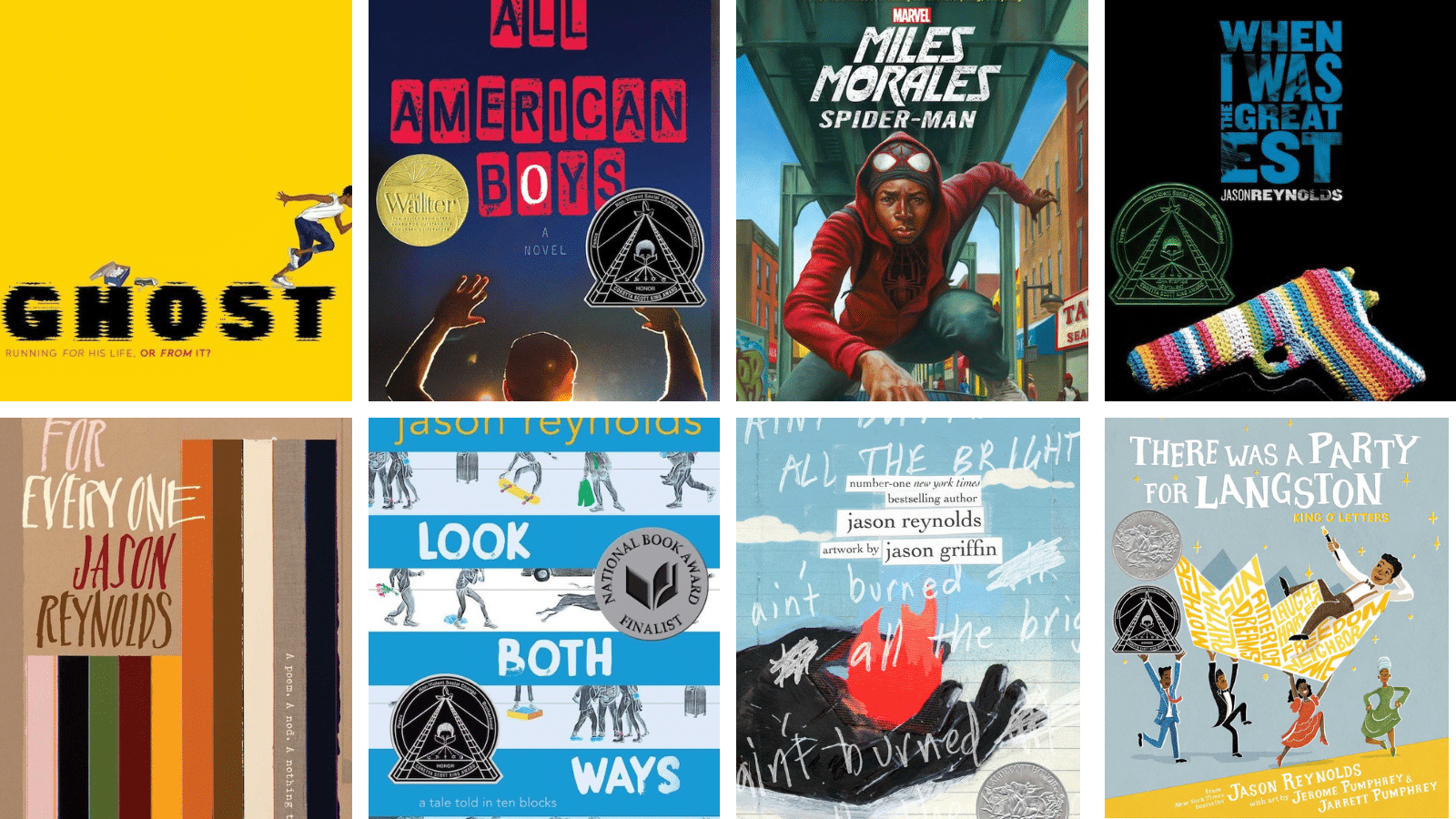
Reynolds has published numerous award-winning books focusing on the experiences of Black youth.
Reynolds’ characters are often about the same age he was when he first began writing poetry as a boy growing up a stone’s throw from the District in Oxon Hill, Maryland. Yet, he would never claim to be representative of today’s Black youth.
“I hate that term, ‘representation,’” he says. “I don’t think I’m representing them. It’s more like a confirmation that my way of being exists in the world. I’m not an alien. I am not an anomaly.”
Writing books for teenage boys also has wider ripple effects. By encouraging Black boys to care for their emotional well-being, Reynolds hopes to combat some of the negative effects that systemic racism, adultification, and misogyny can have upon their lives.
“The more we have young men growing into older men who feel free, then the less harmful they’ll be,” he says. “It is important that young men know that your body in this space matters, your voice in this space matters.”
“The fact you were born with a particular chromosome and chose to identify and live your life a particular way means you have a tangible effect on every single room. And you get to decide what that effect is going to be,” he adds. “Is it going to be one that is safe? That is equitable? That is compassionate? That requires some work and some self-assessment early on.”
Coming of Age in D.C.’s Arts Scene
Influenced by rap and hip-hop, Reynolds wrote his first poem at age nine. By the time he hit his teens, he was immersed in D.C.’s thriving U Street arts scene, where the legacies of iconic poets dating as far back as Harlem Renaissance trailblazers Georgia Douglas Johnson and Langston Hughes provided unlimited inspiration.
Writers, artists, and musicians flocked to the U Street blocks between 9th and 16th Street, sharing their work and gathering on corners, hoping to be photographed by legendary D.C. photographer Jati Lindsay. (“If he took a picture of you, that’s how you knew you were on your way,” Reynolds recalls.)
He remembers the 1980s and 90s as deeply formative years. “I was surrounded by all these brilliant minds, these free Black people, these creative bohemian weirdos, and I felt it was okay for me to make art and to make art as myself,” he says.
In 2020, Reynolds joined DC SCORES Chief of Arts and Culture for a conversation with poet-athletes when programming moved online due to the COVID-19 pandemic.
Reynolds moved to New York City in 2005 but returned to the District in 2016. When he arrived in his old stomping grounds, the creative vibrancy of the U Street scene had been eroded by gentrification, with rising rents pricing venues and artists out of the city.
Reynolds says the loss of these third spaces — locations that encourage people to socialize together outside of work and the home — is having a corrosive effect on the District, especially on the city’s young people, who have only known skyrocketing housing prices and the displacement of communities of color in what was once a majority Black city.
Today, the small independent venues where he performed his early work couldn’t survive, says Reynolds. “I don’t know how you pay a D.C. rent, you know, pay 30 grand, 40 grand, when you’re making a couple of hundred a night,” he says. “It’s just too hard to do.”
A New Lexicon
But while the District may have lost some of the artistic communities of Reynolds’ youth, he is excited by the potential of the city’s young people to put their own creative stamp on D.C.
In 2020, Reynolds was appointed National Ambassador for Young People’s Literature by the Library of Congress. In this role, he connected with thousands of young people during the COVID-19 pandemic to encourage them to write, read, and tell their own stories.
One platform where he saw their artistry and creative joy was in the rise of TikTok. He says, “If I do a dance in my room and I know that there are 500,000 14-year-olds around the world doing the same dance to the same song, that’s something that we should pay attention to.”
If that creativity can be harnessed in the world beyond the internet, Reynolds believes it will pack a punch. “The reckless abandon of young people presents opportunity and possibility if it is harnessed into something irreverent and intentional,” he says.
Programs such as DC SCORES provide third spaces to unleash youth’s creative spark. “You gotta have community, true human community, and DC SCORES is part of creating that for them,” Reynolds explains.
On May 7, Reynolds will join DC SCORES participants ranging from elementary to post-high school age on stage at Our Words Our City. The annual spoken word showcase platforms original youth poetry and is the setting for the presentation of the organization’s Poet Award, which this year will be bestowed on Reynolds alongside D.C. Councilmember and DC SCORES alumna Janeese Lewis George.
The award, which was presented for the first time in 2023 to Clint Smith, is given annually each year to individuals who embody the ethos of DC SCORES youth, known as “poet-athletes” due to the program’s combined focus on soccer, poetry, and service-learning.
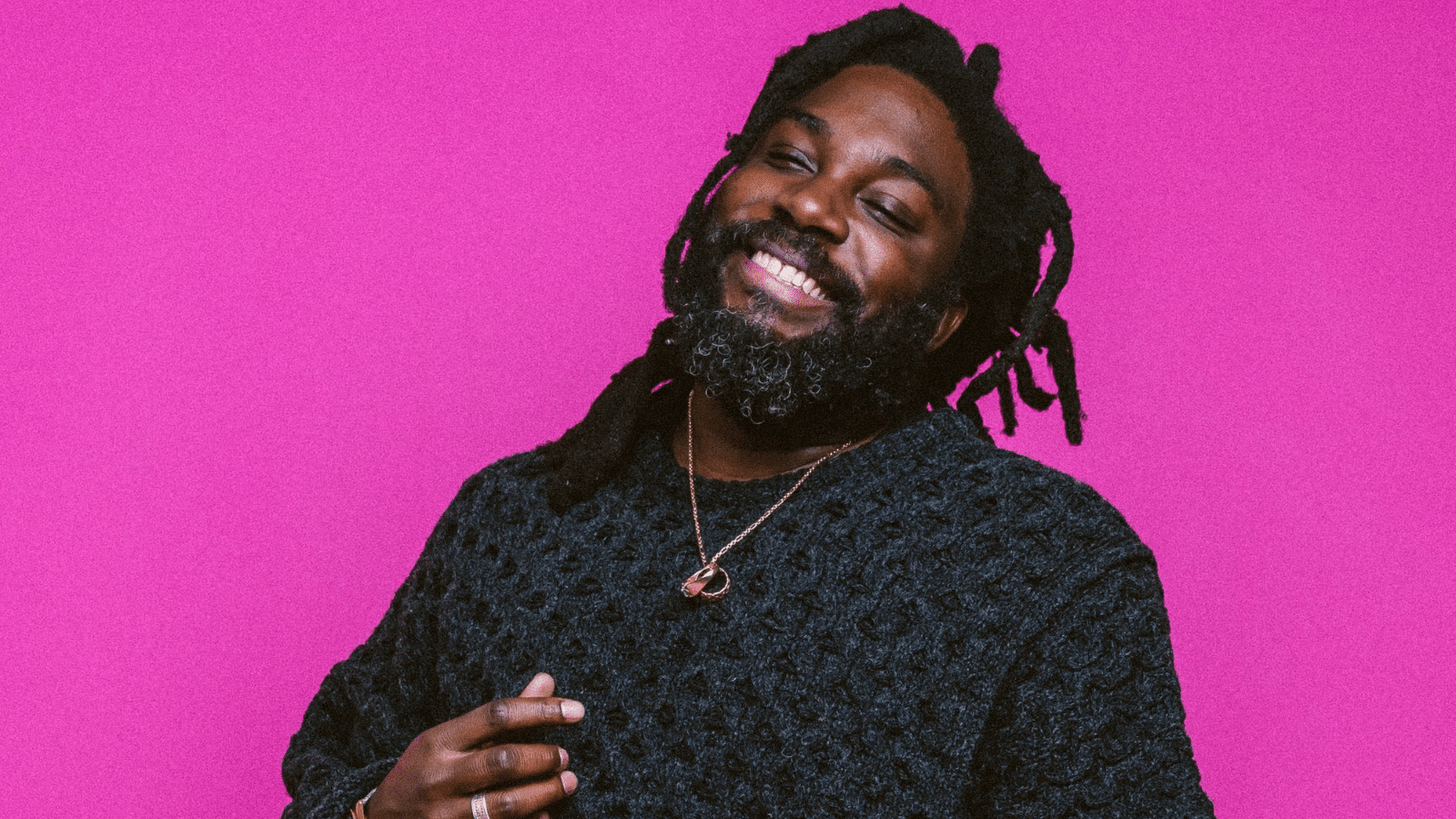
Reynolds believes that creativity and joy can counter some of the challenges D.C.’s youth face today. Photo: Adedayo “Dayo” Kosoko for Jason Reynolds
For Reynolds, the compound word feels almost redundant; poets and athletes share the same practice. “The athlete is always editing. It’s the only reason they practice so much,” he explains. “Same with the poet; the poet is constantly editing. Looking for the right word at the right time, and the athlete is looking for the right move at the right time.”
Recognizing the complementary nature of sports and the arts is a key strength of the DC SCORES program. “It’s usually one or the other, right? Either you’re the writer who doesn’t take very good care of himself physically, or you’re the athlete who doesn’t take very good care of himself emotionally,” Reynolds says.
Ultimately, Reynolds believes that recognizing and developing young people’s multifaceted lives, and giving them the opportunity to voice their nuanced experiences, is liberating.
“If we give them new language, that will be the only lexicon they speak,” he says. “The language of equanimity, equity, and equality. The language of fairness and love. The language of freedom and wholeness would be the only language they know.”

